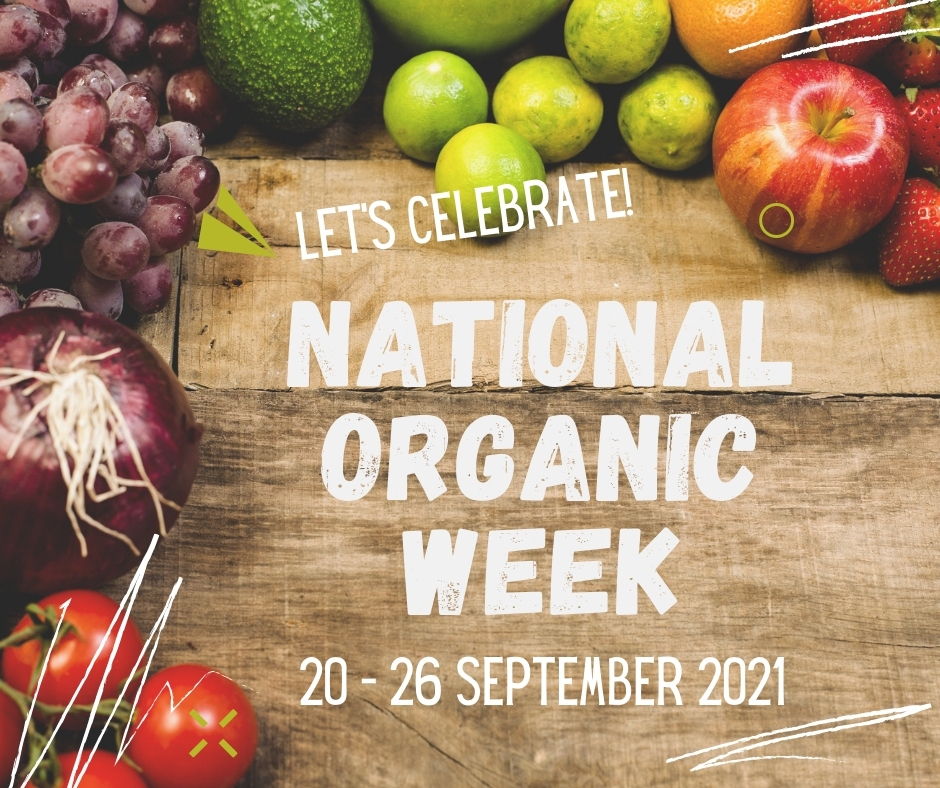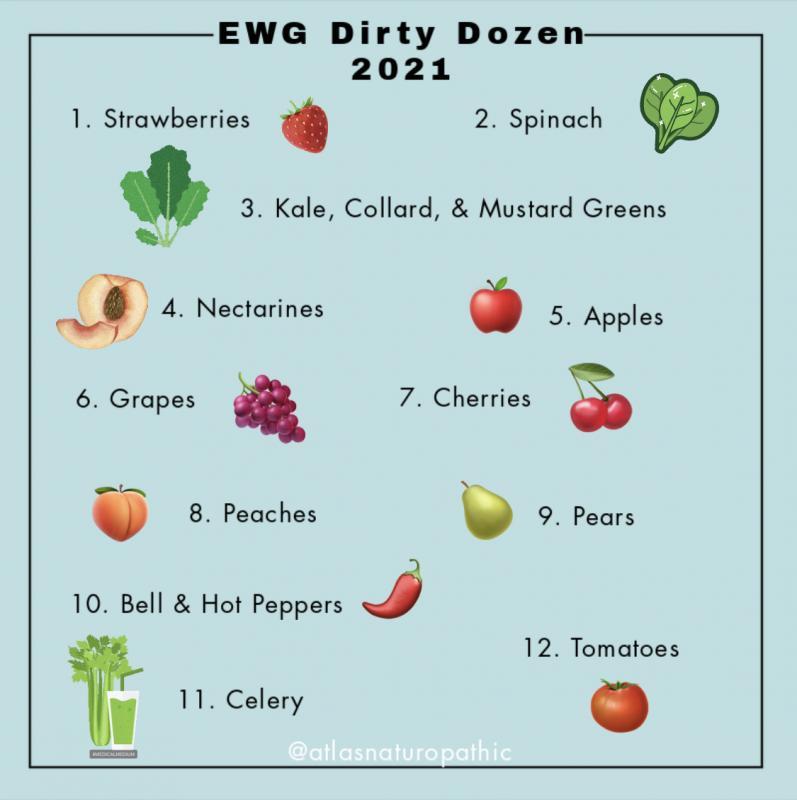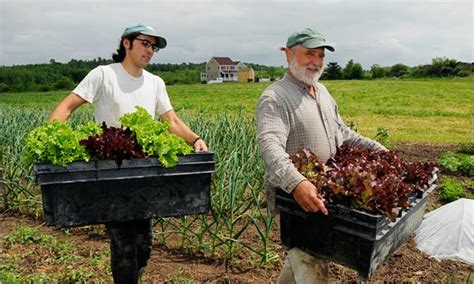Have you felt weary the last few weeks? As a conscious citizen, a local business owner, a producer – it has started to wear even our strong guards down. When will this end? How will this end? And what does this mean for the future of our our families and the economic pain that is felt across the country currently. To offer hope here are some key actions we can all take.
- Care for your mental health
- Connect with your fellow local producers
- Forge a healthier future for your family
- Enable organic food to pass the budget test
- Care more about the environment and your food!
- This week was RU Ok week. A week to reflect on our mates, many who are isolated at this time. Many that may not socialise or connect that much. For some organic producers it can be isolating being one of only a few in each region. Even more reason to reach out and make sure they’re OK. And if a friend needs a break, if they need a chat, or a hand in their business, offer some of your resources to lend a hand.
- Organic producers are a robust bunch. Loyal as they come. Pioneers ahead of their time. But the pandemic is having a unique and lasting impact on their businesses. Like many others. Many Farmers Markets are being closed at short notice. Border closures have meant that some processing businesses cannot get their regular staff to work so are running on half a workforce. And many producers that planned their crops this time last year did not envision that this pandemic would extend to what it has. We need the community to get behind Australian Farmers. We need your local IGA, your supermarket, your local Cooperative to support Australian Organic Farmers like never before. Ask your local supermarket to stock local garlic instead of cheap imported garlic? Encourage your local store to stock locally grown grains, instead of imported flour or oats from Finland (even if they are certified organic!)? Now is the time to buy Australian. There are many champion organic producers around the country, and if we don’t support these farmers in this time of need – they may not be here in a year’s time. Australia has the most certified organic farmland of any country in the world, now over 39 million Hectares. Yet many retailers and processors are importing organic food that competes with our Australian producers. Get behind Australian organic dairy, meat, grain and horticulture producers. Food security has never been more critical than right now in the daily choices we all make.
- Buy as local as you can, whenever you can
- Find your local farmers HERE
- Buy organic AND grown in Australia
- Activare your own local Buyers Group – to share in the efficiencies of bulk buying and sales. Ask us how!
- Find a nearby online pre-order for your local produce (see Open Food Network or Prom Coast Collective)
- Become a member of ORICoop – https://www.organicinvestmentcooperative.com.au/membership/
- A pandemic. Can it be a war won with health?
While we are talking about healthy food and ‘wellness’. How is your wellness lately? Is this pandemic a war on medicine, or a war won with better health? Good food choices? Better eating habits? In years gone by families were supported with investment in time, slow food, made with healthy locally grown, seasonal vegetables and fruit. Many having their own backyard gardens and healthy food. Access to fresh healthy food in our hospitals can even be a complex task. We need to act on better community wellness and be the shining light to the next generation in how we connect, appreciate and value our food.
* Is healthy organic food expensive? Or is industrial food just too cheap?
What is the ‘true cost’ of healthy food? Or the cost of unhealthy food in terms of long term sickness? Organic food is closer to the ‘true cost’ of food production – the sad part is that the industrial food system has deceived us that industrial food is cheap, bulk and does no harm. Harm to humans. Harm to our health. And harm to the environment in which it’s grown. Investing into organic food is not about gourmet products. It’s about avoiding the ‘Dirty Dozen’. It’s about investing in the type of farming that you want to feed your family. Would you go camping in a cattle feedlot? Or in the middle of a broccoli patch that is sprayed every few days? Or eat flour that has been desiccated (sprayed) just days before harvest? Every time we invest in healthier food, we are investing in a healthier planet, healthier farmers, and ultimately healthier food.
* And what about the environment in which our food is produced?
Have you considered the downstream externality cost of an industrial food system on the environment? Where food is mass produced in monocrops. That requires higher levels of toxic sprays due to the increasing pest and disease burden. Higher levels of artificial nitrogen that over stimulate growth causing further health issues for the plant. And lacking nutrient density as it’s force fed an unhealthy high ‘N’ diet. Rather than naturally grown, and naturally fertilised organic food. And where do all these toxins and artificial inputs end up? In our water systems? Have you wondered why we have such extreme levels of blue green algae? Why the Great Barrier Reef is under such environmental pressure. We only have one planet and without adjusting our food and farming choices – we are destroying our top soil and our planet quicker than we realise.
Some may say organic farming cannot feed the planet! Ask the question – just how much land in Australia is wasted? How much is not fully utilised, or multi-layered to produce more food and give better resilience to farm businesses. Should Australia be focussed on growing more and more and more. Or should we be considering growing healthier, more nutrient dense, more regenerative, less environmentally damaging and healthier food for our communities. What if there is a peak oil limit and access to phosphorus or nitrogen in artificial forms becomes financially unsustainable in the next decade? Perhaps now is the time to transition our thinking to regenerative farming systems that circulate our agricultural economy, including waste and nutrients and lessen farmers’ dependence on expensive unsustainable external inputs. Organic and regenerative farmers are strategic masterminds. They regenerate the land with minimal external resources. They read their soil and meet the needs of the land. Without a chemical bucket list. And use their livestock and natural resources to grow nutrient dense food while regenerating the land. How about you?
From Calvin – an organic grain producer from South West Victoria. His deep concerns regarding the increasing COVID virus lockdowns, increasing levels of cancer and other serious health problems. Plus the planetary boundaries and climate resilience. See his reflections here….
I, along with others see the urgent need to find the CAUSE of these events and DO SOMETHING TO PREVENT AND LOWER THE FREQUENCIES OF THESE HAPPENINGS. SOMEONE NEEDS TO START SOMEWHERE. The time is now.
I feel that over the more recent years, farmers have been convinced to apply more and more dangerous chemicals so as to increase production and yield.
Farmers are paid for quantity NOT quality .
In the process of increasing production, by applying these chemicals, this process has most likely killed off almost ALL the natural soil life necessary for balanced nutrition in our food. Nature tries to build up life in soils, but a couple weeks later, another spray is applied to kill weeds etc and microbes again. Most soils in my local area have zero soil life and very little air left to allow microbes to live .
There is a varying degree of soil hardness in my area, but some farms it is now almost impossible to dig a 4 tine garden fork any more than 2 inches into the ground, even by jumping on it [maybe it would be more profitable to make bricks in these areas ]
In my opinion, the answer is in convincing farmers to use an intense program of cover cropping and applying healthy microbes [which is much less costly than the presently used fertilizers].
Further, I feel that there are enough farmers [grain, horticulture, fruit, dairy and beef to supply Australia’s food requirements for “CLEAN” food. The other can be sold overseas to hungry nations. Food security has never been such a national issue as right now. With closed borders and transport delays.
Are we to wait until further epidemics evolve and more climate change, or can we make changes now?
I know it’s a difficult question, however we need to start somewhere, and the epidemic is making it even more urgent.
ORICoop connects Organic and Biodynamic Farmers that demonstrates the direct relationship between healthy food, healthy farms and a healthy planet. Did you realise that organic agriculture is a leader in addressing these key questions of food security, planetary boundaries and healthy people?
- Organic agriculture has the capacity to provide one (1) calorie of food energy for every calorie of energy utilized to produce that food, typically industrial agriculture requires twenty (20) calories of energy primarily sourced from fossil fuel to produce a calorie of food, hence a higher footprint
- Organic agriculture in general requires less fossil fuel per hectare and kilo of produce due to the avoidance of synthetic or artificial fertilizers.
- Organic agriculture improves soil fertility and nitrogen supply by using leguminous crops, crop residues and cover crops.
- The enhanced soil fertility leads to a stabilization of soil organic matter and in many cases to a sequestration of carbon dioxide into the soils.
- This in turn increases the soil’s water retention capacity, thus contributing to better adaptation of organic agriculture under unpredictable climatic conditions with higher temperatures and uncertain precipitation levels.
- Organic production methods emphasizing soil carbon retention are most likely to withstand climatic challenges particularly in those countries most vulnerable to increased climate change.
- Soil erosion, an important source of CO2 losses, is effectively reduced by organic agriculture and as a consequence prevents the loss of energy that would occur due to the embedded energy used in industrial agricultural systems.
- Organic agriculture can contribute substantially to agroforestry and mixed production systems.
- Organic systems are highly adaptive to climate change due to the application of traditional skills and farmers’ knowledge, soil fertility-building techniques and a high degree of diversity.
The Way Forward
So what does this mean for us? Supporting organic and biodynamic producers has never been more critical as now. At ORICoop we encourage more producers to transition to biological farm systems. We know it takes time. We can assist with connecting with your local organic producers. We know to balance supply and demand – we need more businesses to invest in more locally grown, Australian produce. Not cheap imported food. Whether organic or conventional.
Agriculture has been a massive rebound for Australia’s economy in the past. It has been a place where you could always find work, a living, and raise your family. It can this time as well. If you are interested to be involved in the most exciting area of agriculture – in organic food systems, or organic farming. Contact us to find out how! We have producers looking for the next generation of farmers. Now more than ever!
* National Organic Awards – vote for your favourite organic business HERE
* Did you know it’s Organic Awareness Month? Here are ways you can be involved in raising awareness of all the reasons why Organics is better for you. For your family. For the planet. And for organic producers.
And if you are not already an ORIcoop member make sure you join ORICoop HERE. And encourage as many others as you can to also join. Don’t forget that the power of numbers to make change is very strong. Together we are stronger.
(And subscribe to our blog here for our next updates)
#nationalorganicweek
#organicawarenessmonth
#bethechange
#organicfarming
#covidhealthwarrior
#healthandwellness



